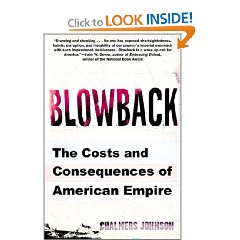April 8, 2000
Steven M. Shaker
I have mixed feeling about these guys, and their book, but the bottom line is that it makes a contribution and must be read. They address, in a manner understandable by the complete layman, the intersection of competitive intelligence, corporate security, and WarRoom operations. They have a number of very useful and thoughtful figures. The book is unquestionably at the head of the class with respect to WarRoom operations and exploiting information technology and basic planning and execution and visualization concepts. Where I have a real problem with this book is in its advocacy of elicitation and other deceptive techniques, no doubt a hang-over from Steven's days as a CIA case officer. There is absolutely no place in U.S. competitive intelligence for such methods, and any discussion in that direction must be forcefully opposed if we are to succeed in creating a legal, ethical, overt network of intelligence professionals able to reinforce each other in providing open source intelligence to businesses as well as non-governmental organizations.









